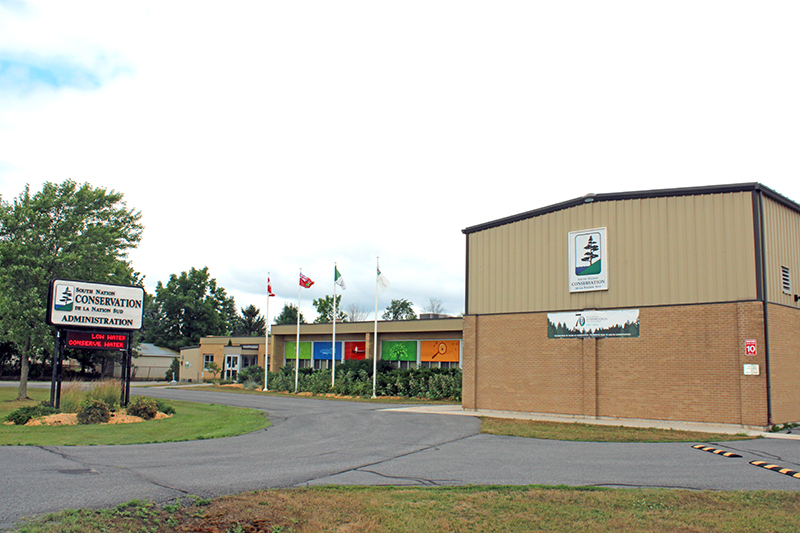FINCH – The Government of Ontario has been looking for ways to address the lack of housing in the province.
The issue of affordable housing available to residents in SD&G has come up several times at the United County level of government with ideas to meet the challenge.
The province has recently proposed legislative changes as described in Bill 23, (More Homes Built Faster Act) as part of their way to deal with the housing challenge, but these changes according to the many conservation authorities in the province will have a negative impact on their organizations.
The South Nation Conservation, (SNC) has released a statement regarding the proposed changes.
“The province proposes to prevent municipalities from entering into agreements with Conservation Authorities (CAs) to review planning applications on their behalf, proposes exemptions from natural hazard permits for select municipalities, removes ‘conservation of lands’ and ‘pollution’ as considerations in permit decisions, freezes development fees, changes the evaluation and protection criteria for Provincially Significant Wetlands and requires CAs to identify conservation lands suitable for development,” stated the SNC statement.
Conservation authorities in Ontario are well aware of their roll in dealing with the need for more affordable housing in the province.
North Dundas Mayor Tony Fraser said, “The relationship that North Dundas has with SNC is a valuable relationship. I trust that council and staff want to continue the relationship we have and rely on their expertise and advice.”
Fraser said the council relies on SNC’s consideration when it comes to setbacks waterways, and creeks.
“In a rural area the conservation authority is valuable. It is a valuable partner,” he said.
The SNC stated, “Earlier this year, the province published a “Housing Affordability Task Force Report” that introduced 55 recommendations to increase house supply in Ontario. CAs were not named within the report, demonstrating they are already proactively working with the development industry and all levels of government to ensure safe and sustainable development can occur while balancing the needs of people and the environment, the economy and ecology.
Ottawa Deputy Mayor George Darouze and Osgoode councillor said, “Conservation Authorities are not a barrier to growth and CAs in high-growth areas of the province are already participating in a Timely Review Task Force with service level commitments of 14-, 21-, and 28-day reviews, compared to the province’s 30- and 90-day timelines.”
“Our Conservation Authority works as our municipality’s environmental partner,” said Mario Zanth, Mayor of the City of Clarence-Rockland, “CA staff have rolled out the red carpet to help provide timely development approvals to projects in environmentally significant areas.”
He pointed out that after the Ottawa River floods of 2017 and 2019, residents became aware of the need for the services that the conservation authorities provide.
The SNC statement said, “While CAs are created through provincial legislation, they are largely funded and work for municipalities within their watersheds. South Nation Conservation (SNC) is one of the oldest environmental agencies in Ontario and has continued to expand its jurisdiction at the request of municipalities, first along the St. Lawrence River, and more recently, along the Ottawa River.”
In Clarence-Rockland, the Ottawa River Floods made partnering with the SNC an obvious next step. The partnership resulted in updated natural hazard maps and commitments to review them with the SNC.
In Eastern Ontario, SNC has agreements with neighbouring agencies to streamline development review processes and deliver planning services to help municipalities short on resources meet their provincial requirements. Recently, SNC also expanded its septic system program into Leeds-Grenville to help municipalities meet their requirements under the Ontario Building Code after the local Health Unit stopped delivering this service.
“We have a long-standing and positive working relationship with SNC,” said Pierre Leroux mayor of Russell Township. “We appreciate their feedback and expertise in helping us make good planning decisions. The CA is a valued partner in providing valuable services to our community.”
According to SNC, Bill 23 proposes changes to the classification and protection of Provincially Significant Wetlands (PSWs). These are areas where development requires permission from CAs.
SNC, unlike other CAs, only regulates development within PSWs and Locally Significant Wetlands (LSWs) that are studied and zoned locally by municipalities for protection.
“Wetlands minimize the risk of drought, reduce flooding by absorbing and storing excess water and help control erosion. The proposed changes will reduce the area of protected wetlands on the local landscape, which means more potential for impacts to communities from flood and drought.”
Steve Densham, Deputy Mayor Elect of the Township of North Stormont said, “SNC’s approach of supporting the municipality’s decisions regarding the required environmental protections and studies allows for local decision-making.”
He added that the township benefits from lower costs, but greater expertise in meeting the township’s needs.

Joseph Morin is the Editor of the Eastern Ontario AgriNews, and the Record. He is, despite years of practice, determined to eventually play the guitar properly. He has served the Eastern Ontario community as a news editor, and journalist for the past 25 years with the Iroquois Chieftain, Kemptville Advance, West Carleton Review, and Ottawa Carleton Review in Manotick. He has never met a book he did not like.









